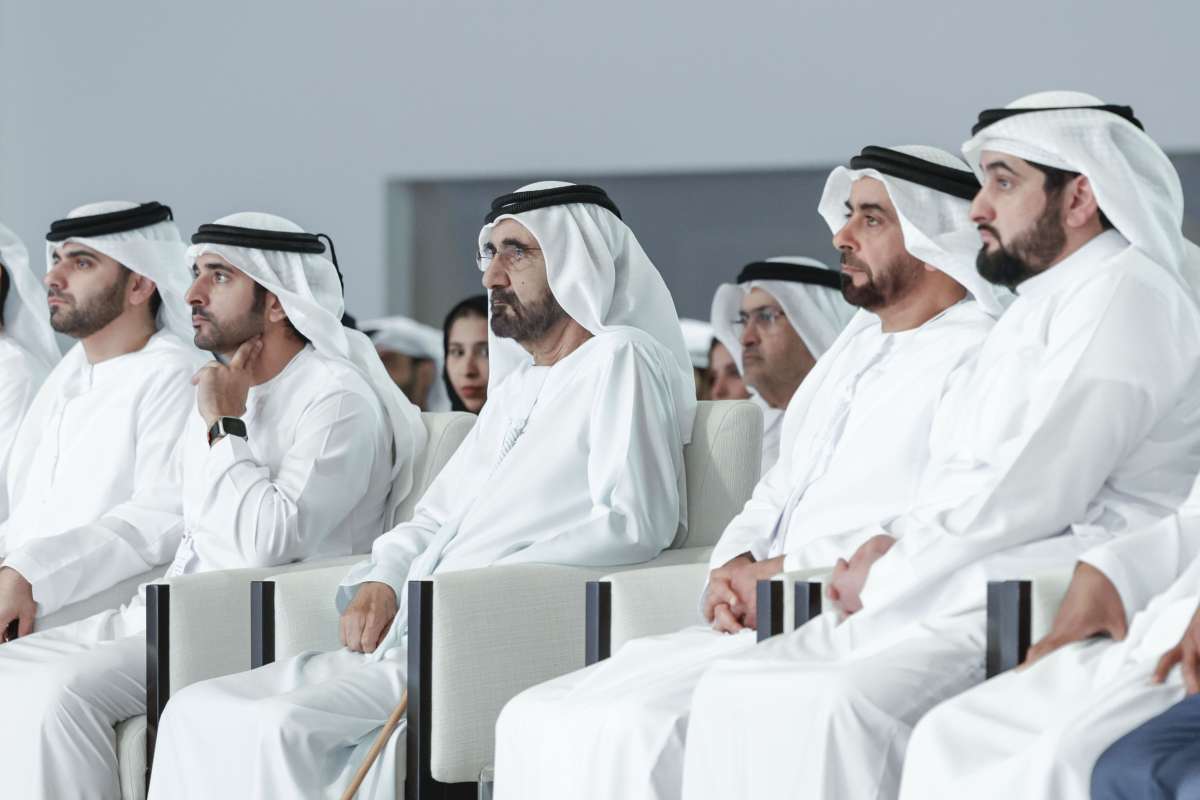H.H. Sheikh Mohammed stressed that the UAE will remain supportive of the Palestinian Cause, seek to bring peace and continue to support Palestinians….reports Asian Lite News
The Palestinian issue will remain in the conscience of everyone, and the UAE will remain supportive of the cause, according to His Highness Sheikh Mohammed bin Rashid Al Maktoum, Vice President and Prime Minister of the UAE and Ruler of Dubai.
“The issue will remain in the conscience of every human being who possesses true moral standards. The UAE will remain supportive of the cause, seek to bring peace and continue to support the brotherly Palestinian people,” H.H. Sheikh Mohammed wrote on social media after attending the Arab Strategic Forum 2024 in Dubai.
“Our region needs to contain its crises, coordinate its efforts, build bridges of cooperation between its various parties, and adhere to its independent options to resolve its crises and build its future,” he added.
The Arab Strategy Forum 2024, is being held under the theme “The Political and Economic State of the Arab World”.
His Highness highlighted the urgent need for the region to resolve its conflicts and bring together the efforts of its people to achieve comprehensive prosperity. The security and prosperity of the region are intertwined, and it is the collective responsibility of everyone to contribute to building a better tomorrow for future generations, Sheikh Mohammed said.
His Highness also stressed that avoiding alignment with global polarisations is crucial for regional stability and prosperity. Additionally, Sheikh Mohammed expressed that Palestine holds a significant place “in our collective consciousness”. He highlighted the UAE’s role as one of the first nations calling for an end to the conflict, the protection of civilian lives, and actively providing humanitarian aid to people in the Gaza Strip.
Stressing the high human and resource costs of wars, Sheikh Mohammed underscored the need to put an end to the ongoing conflict and exert maximum efforts towards achieving lasting peace.
During his welcome address, Mohammad bin Abdullah Al Gergawi, Minister of Cabinet Affairs and Chairman of the Arab Strategy Forum, outlined three trends shaping the future of the region and the world. These include developments related to the Palestinian cause and the conflict in Gaza, the emergence of GCC countries as global economic powers and influential partners in addressing global issues, and the increasing intensity of polarisation not only on an international level but also within societies.
The Palestinian cause
Al Gergawi noted that the most prominent shift in the region is the unprecedented ramifications of the Palestinian cause and the war in Gaza, which has so far claimed more than 22,000 lives, left more than 57,000 casualties, destroyed 60 percent of the infrastructure in Gaza, and displaced 90 percent of the population.
The minister labelled the war as “an unprecedented humanitarian disaster in decades. Despite the horrors of this war and efforts of many countries to stop it, we need to reflect on it.”
The minister questioned “Will Gaza war be the catalyst of lasting peace in the region and the establishment of a Palestinian state, or will it be the beginning of an extended war on various new fronts in the region? Will it be the last war or the starting point of new wars?”
Rising influence of the Gulf
Al Gergawi said the second shift witnessed in the region is the rise of the Gulf countries as major economic powers and influential global partners that actively engage in mediating solutions for political, economic, climatic, and humanitarian issues.
The UAE’s recent successful hosting of COP28, he said, underscored the pivotal role played by Gulf countries in shaping the world’s environmental agenda.
Qatar’s hosting of the 2022 World Cup and Saudi Arabia’s selection for the 2034 World Cup cement the Gulf’s significant role in shaping the global sports agenda.
The hosting of Expo 2020 Dubai and plans for Expo Riyadh 2030 highlight the GCC’s significant contribution to formulating the world’s cultural agenda, stated Al Gergawi.
“The Gulf countries have emerged as influential contributors in shaping both the political and economic dimensions of the global map. They maintain equilibrium by participating in major economic blocs, embracing a novel principle in international relations centred on openness to all. Additionally, they expand their circle of investment relations and forge partnerships built on mutual benefit for all involved parties.
“Today, the Gulf countries stand as a global investment powerhouse, with their sovereign funds totalling an impressive US$3.8 trillion – the largest in the world and comprising 34 percent of the global funds.”
In 2023, the UAE and Saudi Arabia joined the BRICS, alongside Egypt, Ethiopia, and Iran, raising the combined economies of the BRICS nations to approximately US$28 trillion.
Increasing polarisation
Al Gergawi said the third shift is the intensifying polarisation, not solely on an international scale but also within societies – on the intellectual, religious, political, and social fronts.
“We observe a growing divide between the East and West in the values, political orientations, and perspectives on international issues, coupled with a shift away from economic globalisation towards populism and protectionism.”
He added, “The growing overflow of information and media chaos further exacerbate these divisions. In 2024, over 4 billion people will participate in parliamentary and presidential elections across more than 75 countries worldwide.”
He said “The question is: Will 2024 be marked by escalating societal divisions and diverging paths for countries and cultures? Or will it be a year where distances are bridged, fostering new connections and relationships?”
ALSO READ: UAE President, WHO Chief Discuss Health Challenges in Gaza

Leave a Reply